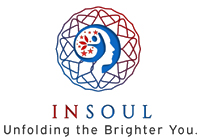Types of therapy
You may not find the right approach for you straight away, and that’s OK. Take your time.
Psychological therapies generally fall into the following categories: behavioural therapies, which focus on cognitions and behaviours, psychoanalytical and psychodynamic therapies, which focus on the unconscious relationship patterns that evolved from childhood, humanistic therapies, which focus on self-development in the ‘here and now’, arts therapies, which use creative arts within the therapeutic process and couples counselling, which looks to resolve issues experienced by couples.

This is a generalisation, and counsellors will typically overlap some of these techniques. Some counsellors or therapists practice a form of ‘integrative’ counselling, which means they draw on and blend specific types of techniques. Other practitioners work in an ‘eclectic’ way, which means they take elements of several different models and combine them when working with clients. There are also a number of other therapies that may be used.
Below is a breakdown of some of the different therapies available.
Relationship counselling
Relationship counselling (also known as couples counselling) is a type of therapy that looks to aid communication and facilitate change within an intimate relationship. Typically, the term couples counselling is applied when the therapy is specifically designed for two people within a relationship. With this in mind, counsellors who offer this form of therapy should have the relevant training to help them work with the dynamics of a couple.
Cognitive and behavioural therapies
Behavioural therapies are based on the way you think (cognitive) and/or the way you behave. These therapies recognise that it is possible to change, or recondition, our thoughts or behaviour to overcome specific problems.
- Acceptance and commitment therapy (ACT)
- Behavioural therapy
- Cognitive analytic therapy (CAT)
- Cognitive behavioural therapy (CBT)
- Cognitive therapy
- Dialectical behavioural therapy (DBT)
- Eye movement desensitisation and reprocessing (EMDR)
Psychoanalytical and psychodynamic therapies
Psychoanalytical and psychodynamic therapies are based on an individual’s unconscious thoughts and perceptions that have developed throughout their childhood, and how these affect their current behaviour and thoughts.
- Dynamic interpersonal therapy
- Jungian therapy
- Psychoanalysis
- Psychoanalytic therapy
- Psychodynamic therapy
Humanistic therapies
Humanistic therapies focus on self-development, growth and responsibilities. They seek to help individuals recognise their strengths, creativity and choice in the ‘here and now’.
- Existential therapy
- Gestalt therapy
- Human Givens psychotherapy
- Person-centred therapy (also known as “client-centred” counselling)
- Psychosynthesis
- Reality therapy
- Solution-focused therapy
- Transactional analysis
- Transpersonal psychology
Arts therapies
Arts therapies involve the use of creative arts such as music, art, drama and dance – in a therapeutic environment.
- Art therapy/Art psychotherapy
- Dramatherapy
- Music therapy
Other therapies
Although psychological therapies generally fall into the categories above, there are also a number of other specific therapies too.
- Compassion-focused therapy
- Dance therapy
- Equine therapy
- Family/Systemic therapy
- Group therapy
- Integrative counselling
- Interpersonal therapy
- Mindfulness
- Play therapy
- Psychosexual therapy
- Psychodrama
- Schema therapy
